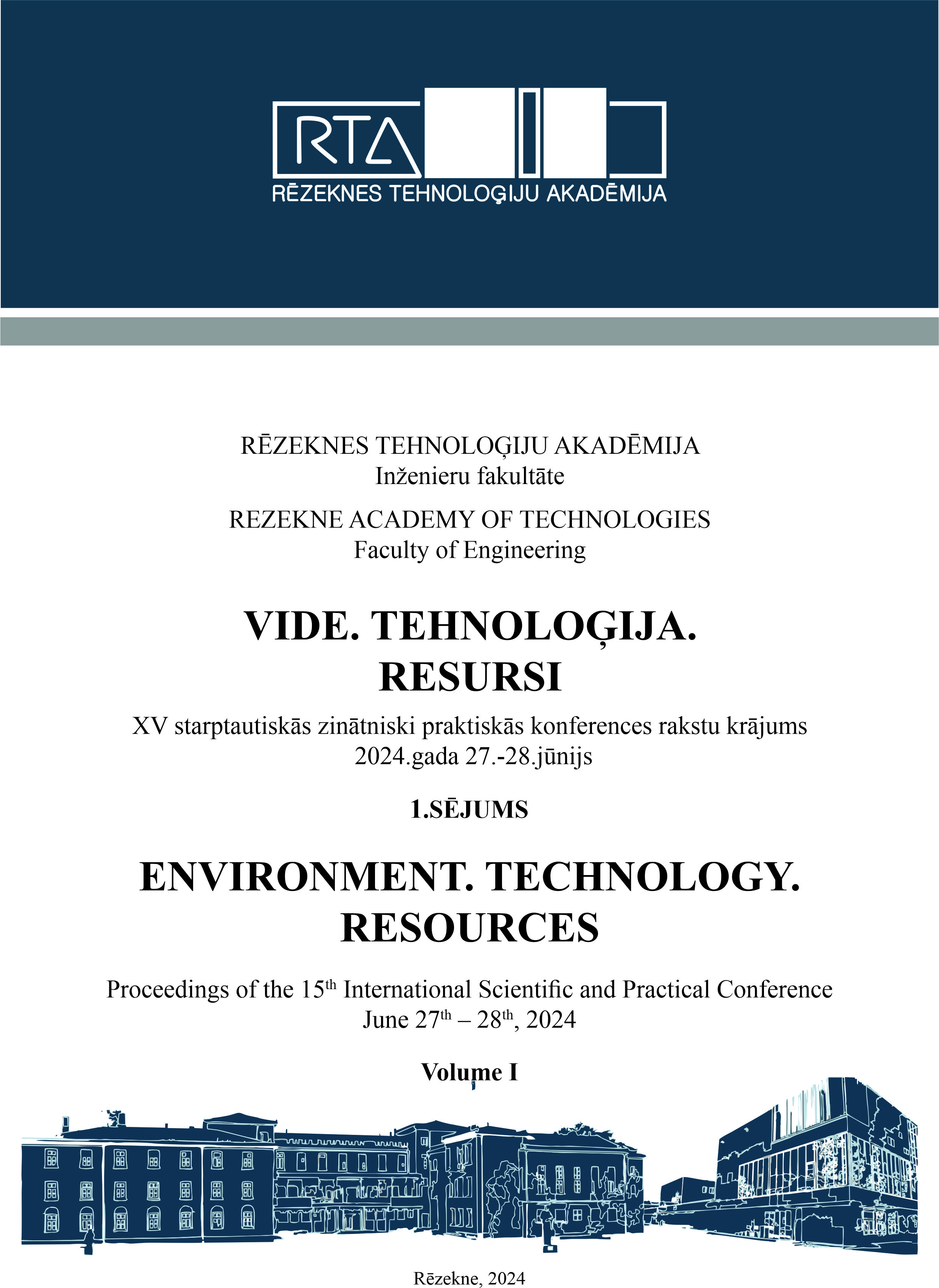A NEW APPROACH TO SUSTAINABLE MANAGEMENT – THE CONCEPT OF SOCIAL FARMING
DOI:
https://doi.org/10.17770/etr2024vol1.7995Keywords:
employment, environmental protection, social entrepreneurship, social farming, sustainable managementAbstract
The present scientific paper examines a new approach to sustainable management, related to the concept of social farming. The socio-ecological nature of the social farming makes it a valuable asset, contributing to the welfare, wellbeing, intercultural learning, labour integration and social inclusion of the most disadvantaged groups of society. The potential of the social farming for achieving sustainable development in the rural areas is enormous, including social entrepreneurship and social innovation, increased employment rates and incomes, social inclusion, training, recreation, innovation and environmental protection. Social farming, as a multifunctional model, contributes both, to the public welfare and the alternative entrepreneurial business model. The proposed systemic model represents a more comprehensive approach to the complex nature of the social faming. The results of the study encompass the theoretical review of the concept, an effective social farming model and the existing problem-solving opportunities.
Downloads
References
A. F. Tulla et al., “New approaches to sustainable rural development: Social farming as an opportunity in Europe?”, Human Geographies – Journal of Studies and Research in Human Geography. Vol. 11, No. 1, May 2017, pp. 25-40.
European Economic and Social Committee Opinion of the European Economic and Social Committee on ‘Social Farming: Green Care and Social and Health Policies’ (Own-Initiative Opinion) (2013/C 44/07). Official Journal of the European Union, C44/44-48, 15.2.2013. Available online: https://eur-lex.europa.eu/legal-content/EN/TXT/PDF/?uri=CELEX:52012IE1236&from=IT [Accessed on 8 Feb 2024].
M. Lanfranchi, C. Giannetto, T. Abbate, V. Dimitrova, “Agriculture and the social farm: expression of the multifunctional model of agriculture as a solution to the economic crisis in rural areas”, Bulg. J. Agric. Sci., 21, 2015, pp. 711–718.
D. Musolino, A. Distaso, C. Marcianò, “The Role of Social Farming in the Socio-Economic Development of Highly Marginal Regions: An Investigation in Calabria”, Sustainability, vol. 12 (13): 5285, 2020. https://doi.org/10.3390/su12135285.
M. García-Llorente et al.,“Social Farming in the Promotion of Social-Ecological Sustainability in Rural and Periurban Areas”, Sustainability vol. 8, 1238. 2016. https://doi.org/10.3390/su8121238.
M. Lanfranchi, C. Giannetto, “Sustainable development in rural areas: the new model of social farming”, Quality - Access to Success, Vol 15, Issue 139, 2014, pp. 219-223.
A. Fioritti et al., “Social enterprises, vocational rehabilitation, supported employment: working on work in Italy”, The Journal of nervous and mental disease, 202(6), 2014, pp. 498-500. DOI 10.1097/NMD.0000000000000150.
J. Dessein J., B. Bock, M. de Krom, “Investigating the limits of multifunctional agriculture as the dominant frame for Green Care in agriculture in Flanders and the Netherlands”, Journal of rural studies 32, 2013, pp. 50-59.
C. Leck, D. Upton, N. Evans, “Agriculture–Who cares? An investigation of ‘care farming’ in the UK”, Journal of Rural Studies, vol. 34, 2014, pp. 313-325.
B. B. Bock, “Rural marginalisation and the role of social innovation; a turn towards nexogenous development and rural reconnection,. Sociologia Ruralis, vol. 56 , 4, 2016, pp. 552-573. DOI: 10.1111/soru:12119.
F. Sgroi, Social agriculture is a strategy to prevent the phenomenon of abandonment in mountain areas and areas at risk of desertification, Journal of Agriculture and Food Research 10 (2022) 100454.
EC. Social Economy Action Plan, 2021. https://ec.europa.eu/social/main.jsp?catId=1537&langId=en [Accessed 6 Feb, 2024]
M. Lanfranchi, C. Giannetto and A. De Pascale, The role of nature-based tourism in generating multiplying effects for socio economic development of rural areas, Quality - Access to Success, 15 (140), 2014: 96-100.
F. Giarè., P. Borsotto, Signoriello, “Social Farming in Italy. Analysis of an «inclusive model». Italian Review of Agricultural Economics, 73 (3), 2019, pp. 89–105. https://doi.org/10.13128/REA-25107.
I. Canfora, L’agricoltura come strumento di welfare. Le nuove frontiere dei servizi, Diritto agroalimentare, n.1, 2017, pp. 5-25. ISSN: 2499-7463.
Act on Social and Solidarity-Based Enterprises (240/2018) https://lex.bg/en/laws/ldoc/2137187968 [Accessed 15 Jan 2024].
T. Marinova and E. Yoneva, Social Enterprises in Bulgaria Historical and Institutional Perspective, 2021, pp. 23-39, Routledge, 10.4324/9780429324529.
E. Pruteanu, L. Furdui, V Şerbu, “Cooperation – the future of peasant farms in Romania”, Quality – Access to Success, 13 (3), 2012, pp. 801-808.
V. Foti, V. Giudice, M. Rizzo, “Relationship system analysis in social farming: The role of "Sicilian Social Farm Network", Quality – Access to Success,15 (1), 2014, pp. 62-68.
C.S. Holling, Understanding the complexity of economic, ecological, and social systems. Ecosystems 4 (5), 2001, 390-405.
M. Starik, P. Kanashiro, “Toward a theory of sustainability management: uncovering and integrating the nearly obvious”. Org. Environ. 26 (1), 2013, pp. 7-30.
M. Starik, G. P. Rands, “Weaving an integrated web: multilevel and multisystem perspectives of ecologically sustainable organizations”. Acad. Manag. Rev. 20 (4), 1995, pp. 908-935
A. Williams, St. Kennedy, F. Philipp, G. Whiteman, “Systems thinking: A review of sustainability management research”, Journal of Cleaner Production 148, 2017, pp. 866-881.
V. Dimitrova, “The smart specialization as a factor for innovation and economic growth”, Yearbook of the University of Telecommunications and Post, vol. V, 2021. ISSN 2367-8437, pp. 41-45.
K. Vladimirova, Strategic management of human resources, NBU, 2009, p. 380.
L. Bryant., B. Garnham, Economies, ethics and emotions: Farmer distress within the moral economy of agribusiness, Journal of Rural Studies, 34, 2014, pp. 304-312.
B. Gozener, M. Sayili, Use of animal wastes in beef cattle farming and environmental considerations, Bulgarian Journal of Agricultural Science, 17 (6), 2011, pp. 816-828.
B. Torquati, et al., “Social farming and work inclusion initiatives for adults with autism spectrum disorders: A pilot study”, NJAS - Wageningen Journal of Life Sciences 88, 2019, pp. 10–20.
P. Georgieva, “Bulgarian Food and Beverages Companies toward Industry 4.0 and beyond”, Proceedings of the University of Telecommunications and Post, vol. VI, 2022, ISSN 2367-84372021, p.9.
COMMUNICATION FROM THE COMMISSION TO THE EUROPEAN PARLIAMENT AND THE COUNCIL 2022 Strategic Foresight Report Twinning the green and digital transitions in the new geopolitical context. COM/2022/289 final. https://eur-lex.europa.eu/legal-content/EN/TXT/?uri=CELEX%3A52022DC0289&%3Bqid=1658824364827 [Accessed 20 Jan 2024].
Downloads
Published
Issue
Section
License
Copyright (c) 2024 Vihra Dimitrova, Plamen Pavlov

This work is licensed under a Creative Commons Attribution 4.0 International License.



